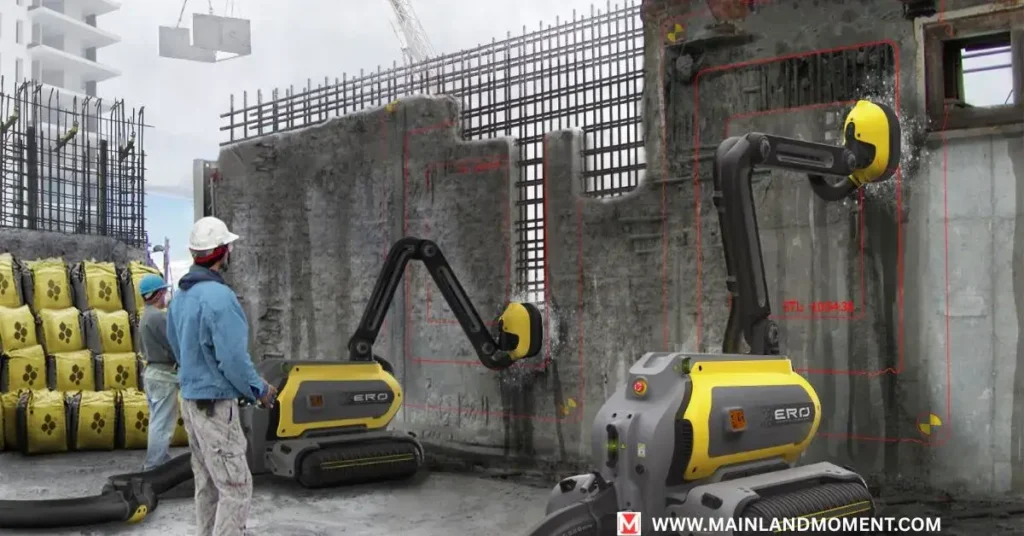The U.S. Construction industry hit a staggering $1.6 trillion valuations in 2024, according to the U.S. Census Bureau. Skyscrapers soar, bridges stretch across rivers, and highways connect cities all built by pros who transform blueprints into reality. Wants a career that shapes the world and pays well? You’re in the right place.
Let’s explore whether construction engineering technology is a good degree for you. Spoiler alert it offers grit, growth, and serious rewards.
This is not just about swinging hammers or doodling designs. It’s about mastering a field that fuses technical knowledge with hands-on action. Curious? Here’s the full scoop pros, cons, and all.
Why Construction Engineering Technology Matters Now
Construction isn’t slowing down. With aging infrastructure crumbling and cities sprawling, the demand for skilled workers is skyrocketing. The Bureau of Labor Statistics predicts a 10.7% jump in construction-related jobs by 2026 faster than most fields. Why? Big investments like the 2021 Infrastructure Investment and Jobs Act are pumping billions into roads, bridges, and buildings.
So, what’s the hook? A degree in construction engineering technology puts you at the heart of this boom. It’s not just a job it is a chance to build something lasting. Ready to see if it’s a worthwhile degree for you? Let’s break it down.
What Exactly Is Construction Engineering Technology?

Think of construction engineering technology as the bridge between dreaming up a building and actually constructing it. It is a hands-on field that blends engineering concepts with practical skills. You won’t spend years lost in theoretical equations. Instead, you’ll learn to read blueprints, manage projects, and use tools like Building Information Modeling (BIM) software.
Unlike pure civil engineering, which leans heavily on design, this degree focuses on execution. Engineering technologists take plans and make them happen on time, on budget, and up to code. It’s perfect for folks who love seeing tangible results, not just crunching numbers behind a desk.
Does This Degree Deliver? The Straight-Up Pros
Wondering if it’s a valuable degree? You bet. Here’s why it shines:
- Job-Ready Skills: You’ll master cost estimation, site management, and cutting-edge tech stuff employers crave.
- Flexibility: From supervising crews to analyzing budgets, your career options are wide open.
- Demand: Construction never stops. The U.S. Needs 41,000 new workers yearly just to keep up, says the Associated General Contractors.
- Payoff: Average salaries start around $63,000, with seasoned pros hitting $95,000 or more, per PayScale data from 2025.
For example, imagine a grad named Alex. Fresh out of school, he lands a gig overseeing a $10 million office build. Two years in, he’s pulling $70,000 and loving the chaos of the site. That’s the power of this degree.
The Flip Side: Challenges You’ll Face
No rose-colored glasses here every path has bumps. Construction engineering technology isn’t all smooth sailing.
- Physical Grind: You’ll work outdoors, sometimes in blazing heat or pouring rain. It’s not for couch potatoes.
- Economic Swings: Recessions can pause projects, though infrastructure often bounces back fast $1.2 trillion in federal funds prove it.
- Tech Evolution: Drones, AI, and robotics are reshaping the field. Staying sharp is a must.
Some folks think it’s “lesser” than engineering. Wrong. It’s just different less theory, more action. If you thrive on that, you’ll crush it.
Career Paths That Pack a Punch
Your career options with this degree? Diverse and exciting. Here’s a taste:
- Construction Manager: You run the show, keeping projects on track. Median pay? Over $100,000, says the BLS.
- Field Engineer: Solve problems on-site think ensuring a crane doesn’t topple. Starts at $65,000.
- Cost Estimator: Crunch numbers to win bids. Average salary sits at $70,000.
- Safety Officer: Protect crews with smart rules. Pay ranges from $60,000 to $85,000.
Take Sarah, a real-world engineering technologist. She started as a site assistant in 2022. By 2025, she’s managing a highway expansion in Texas, earning $92,000. Her secret? Hands-on skills from her degree program.
Show Me the Money: Salary and Growth Breakdown
Let’s talk cash. Average salaries vary by experience, but here’s the rundown:

The job outlook? Bright. The BLS forecasts 31,000 new construction manager jobs by 2032 a 10.7% leap. Why? Urban growth and infrastructure fixes. Your employment potential is rock-solid.
Who Thrives in This Degree?
This isn’t for everyone. So, who fits the bill?
- You loved Legos or built a killer treehouse as a kid.
- Math and tech excite you spreadsheets don’t scare you off.
- You’re a team player with grit, ready to tackle delays or diva contractors.
Not a design geek? No worries. If you’d rather build than sketch, this beats civil engineering. As one pro put it, “I’d rather pour concrete than ponder formulas all day.”
How It Stacks Up: Construction Engineering Tech vs. Civil Engineering

Confused about engineering disciplines? Let’s compare:
- Focus: Construction engineering tech builds it; civil engineering designs it.
- Education: CET offers associate or bachelor’s options, while civil demands a four-year theory-heavy haul.
- Daily Grind: CET’s on-site, boots muddy; civil’s often at a desk, calculator humming.
A CET grad oversees a dam repair, while a civil engineer calculates its stress points. Both matter just different vibes.
What You’ll Learn: Skills That Stick
Your degree program packs a punch. Expect to master:
- Core Skills: Blueprint reading, scheduling, structural basics.
- Tech Edge: AutoCAD, drones, even VR for project previews.
- People Skills: Lead teams, calm clients, dodge chaos.
Labs and internships seal the deal. You’ll graduate site-ready, not just book-smart. One student said, “I went from clueless to running a crane crew in two years.”
Degree Options: Pick Your Path
Not all degree programs are equal. Here’s your menu:
- Associate’s: Two years, fast track. Land technician roles at $45,000+.
- Bachelor’s: Four years, deeper dive. Unlocks manager gigs at $80,000+.
- Certificates: Short boosts like green building stack ‘em for cred.
Pro tip: Look for ABET-accredited schools. They’re the gold standard employers trust.
Real-World Impact: Building More Than Just Structures

This degree isn’t just a paycheck it is a legacy. You’ll:
- Shape cities with schools, roads, and hospitals that last decades.
- Push sustainability with solar panels or recycled concrete.
- Fix real problems like crumbling bridges or flood zones.
Take the I-95 collapse in Philadelphia, 2023. Engineering technologists rebuilt it in 12 days. That’s impact.
Verdict: Is It Worth It for You?
So, is construction engineering technology a beneficial degree? Yes, if:
- You crave variety, decent pay, and a front-row seat to creation.
- You’re cool with long hours and outdoor chaos.
Not your thing if you hate unpredictability or dirt under your nails. But in a world always building, this degree’s your ticket to the action.
FAQs About Construction Engineering Technology
What’s the Difference Between Construction Engineering Technology and Construction Management?
Construction engineering technology dives into technical expertise think understanding structural loads or mastering BIM software. Construction management focuses more on the business side budgets, timelines, and people-wrangling. A CET grad might calculate a beam’s strength, while a manager ensures the crew shows up on time. Overlap exists, but CET’s got a stronger tech edge.
Can I Get a Job With Just an Associate’s Degree?
Absolutely. An associate’s in this field lands you roles like site technician or junior estimator, starting at $45,000–$50,000. Employers love the practical skills you bring straight out of school. Want more? Stack a bachelor’s later for bigger gigs like project manager. The job demand supports both paths.
How Does the Job Outlook Compare to Other Engineering Fields?
The career outlook here outpaces many engineering sectors. Construction managers see 10.7% growth by 2032, per BLS, while mechanical engineering hovers at 7%. Why? Infrastructure needs don’t fade roads crack, cities grow. Your employment prospects stay strong, even when tech fields wobble.
What Kind of Tech Will I Use on the Job?
Get ready for cool toys. You’ll wield applied engineering tools like AutoCAD for drafting, drones for site surveys, and BIM for 3D modeling. Some pros even use VR to preview builds. The catch? Tech evolves fast think AI optimizing schedules by 2026. Staying current boosts your earnings potential.
Is This Degree Good for Someone Who Hates Desk Jobs?
Engineering technologists thrive outside, solving real-time problems like a misaligned foundation. You’ll still crunch numbers, but it’s on-site, not in a cubicle. Hate dirt or weather? Stick to pure design roles. This degree’s for doers who dig the engineering field with mud on their boots.



Comments are closed.